Sex/Life is a series all about the secret sexy business of couples, throuples, exes who still fuck for some reason, LDR darlings, polyculites, and any other kind of amorous grouping your perfect heart can fathom. We send them nosey questions, they record themselves answering them, and we transcribe that conversation for all of us to enjoy. All names have been changed and any identifying details removed.
Want to share the sex story of your relationship? Email [email protected] for details.
Riley is a 39 year-old dean who enjoys horseback riding, snowboarding, and her adorable 7 year-old son. Mae is 35, an avid runner who also teaches yoga and works in tech, and loves watercolor. They live in southern California, are both previously divorced, and have been together for two years (two-and-a-half, if you count the friend-zoning).
And this is how they fuck:
What was your sex life like when you first started dating?
Riley: Really hot. I don’t think that’s changed fundamentally, but there’s such an excitement at the start — exploring them with all that fun, sexy energy. Lots of late nights and early mornings. I was exhausted at work, but it was worth it.
Maybe the frequency has gone down, but the better we know each other and feel comfortable together, the better the sex is.
Mae: We check in about this a lot, which I love. I think there’s more variety, right? Even in terms of what we’re channeling. The emotion behind it.
Riley: Oh, yeah.
Mae: You know? I feel like in the beginning you’re insatiable.
Riley: Yeah. Lust.
Mae: And now we can just, you know, take our time. It’s evolved in a good way.
Riley: Agreed.
You don’t live together — how does that impact your sex life?
Riley: We were both recently divorced when we met. It was an interesting time in our lives, a lot of rebuilding and starting over. I have a son from a previous marriage, but after living closer to Mae for a while, the commute to his school and my work became too much. He needed to be near his friends and school community, which is 15 miles south of Mae. So due to my son, we’re taking our time with moving in together, being mindful about it. He’s a little guy with big feelings and it’s been kinda hard on him. So this transition has been underway for nearly a year, lots of moving and construction ups and downs. Plus, you love your space in Long Beach.
Mae: I do, I love my place in Long Beach. It’s everything I need: efficient, my projector to watch movies on, a balcony. It’s a nice, safe space.
Riley: I also feel like we do kind of live together, since we’re always together, right?
Mae: Correct.
Riley: So it’s kind of silly that you have a place, even though you love it.
Mae: Well, we get to live our single girl life there. It’s a nice crashpad, a deluxe apartment in the sky, where I’ve built my life and community. I think of us as in a little boat together, with our dogs, driving back and forth on the 405.
Riley: That’s how you know we love each other.
Mae: We pick each other up from LAX.
Riley: It’s really cute.
Mae: Yep. Even on a Thursday.
How has having a child impacted your sex life?
Mae: It’s just the nature of being a parent, that you have to put his needs first. And sometimes that means we get a little delayed!
Riley: This might be slightly off-topic, but I think it connects — my job also impacts things. I work in education, and it’s draining with the kids’ and parents’ needs. It’s like I’m pouring from my cup constantly, caring for other kids and then worrying about my own, and right now have a crazy commute. I often feel depleted, which’s unfair to you. And again, ‘cause he’s a little guy, I have to do a lot for him when he’s here: picking him up, managing his showers, making his dinner…
Mae: His oodles!
Riley: His oodles that he is obsessed with! So being a parent isn’t the only factor. I get really tired. I’m a sleepy girl, and is that because of my job or because I’m a Taurus? Not sure! [Laughs]
Mae: All that to say: she is eyes-closed by about eight o’clock.
Riley: Yeah. I’m so tired. His needs come first, so logistically, sometimes we can’t get it on because he’s around. But we do a good job of finding ways to be intimate, prioritizing that part of our relationship or acknowledging when it needs attention.
Mae: Yes. Sometimes we even just talk about affection, right? Like just the little touches when you pass by. It doesn’t even have to be very physically intimate. Like in the Esther Perel podcast when she says, “Foreplay begins after your last orgasm,” or something to that effect. We do sometimes look at the calendar and say we have to prioritize it. If we go too long, we get cranky and anxious, we need that reassurance. It’s just a moment of insecurity, but we need that reassurance. And sex is a good way to show, not tell.
Riley: Yeah, for sure.
Do you have a top/bottom dynamic?
Riley: Kind of yes, kind of no. Mae, you tend to like to be the top. But it’s maybe 55-45. You also like it when I take charge. I think in my previous relationships, I felt like I couldn’t be the top. I dated more masc-presenting people — and not that mascs can’t be bottoms, but these happened to be some pretty stone tops. So I got used to that. Part of why I like our relationship is we’ve uncovered a pretty intense top desire I have, and it’s fun for you too.
Mae: Yeah, I’d love to see you explore it! When we met, I felt like you preferred bottoming, but you just needed the chance to explore. I feel like sometimes it’s 60-40, 65-35. It depends.
Riley: I disagree with those numbers. [Laughs]
Mae: Wow. Okay. [Laughs] Either way, it’s not like it’s ever a short affair for us.
Riley: No.
Mae. I mean it’s not all night long, but we do take turns a couple times, we’re very switchy.
Do you feel like your sex drives are well matched?
Riley: Yes. Yes. Yes. For sure.
Mae: Can’t see me but I’m nodding yes.
Riley: Effusively. Yes. Both of us.
Mae: Thank goodness.
Riley: I know.
Mae: Because there’s no real way —on the internet when you’re online dating, which is how we met — to like, come out and talk about it. Some people can, but — oh Riley made a cringe face.
Riley: I know. I don’t, I don’t mean to be judgy, but! If I saw that on someone’s profile —
Mae: Maybe that’s just where we’re at culturally, and what our upbringings molded us into!
Riley: It’s just, it’s presumptive! Like, I’m just going on a date with you. We can talk about this and figure it out.
Mae: ‘Cause who knows, right? Like even as we were talking just now, you used to feel like you were a lot more bottomy, so if you had to advertise, it doesn’t even leave you room to grow or explore.
Riley: Right, and then it sort of locks you into a situation. So, I don’t know, I feel bad that it was judgy! It’s not how I meant it. But yeah, I think we both have healthy sex drives.
Mae: Mm-hmm!
Riley: And I’m glad they’re matched.
Are there things you like to do together during sex, or don’t like to do?
Mae: Riley won’t slap me in the face.
Riley: [Laughs] I need to clarify! I don’t like anything in the face, that feels too personal and violent. Mae can never hit me in the face — I have trauma from breaking my nose as a kid. But yeah, I will slap your ass or anything else you want. I did it so hard one time, your dog whined!
Mae: Yeah, that rattled my bones a little bit.
Riley: Well, you said harder.
Mae: I did [laughs], so wish granted! It was very consensual, to be clear.
Riley: I think that that’s kind of our only — or my only off-limits thing. And by proxy yours. But we’re pretty experimental and open minded.
Mae: I agree. What about toys?
Riley: I’m super basic, I just love that one vibrator of yours — the Mod, I think?
Mae: Oh my god, what an OG.
Riley: That thing is powerful. Which is the one you like? The little sucker one?
Mae: I guess it’s called a Womanizer. I hate the name! They gotta change it! They’d sell more with a rebrand. But yeah, it was recommended to me by my sister and my friend, and it’s something else.
Riley: Yeah, you definitely enjoy that one for sure. [Laughs] I also love, love, [hums triumphant reveal music]: The glass dildo.
Mae: The glass dildo, folks! A tip though, if you’ve never tried one: don’t take it in your carry-on, because under the TSA screen, it will look like water. It will look like liquid.
Riley: I don’t know, they can identify a dick.
Mae: They pull you aside. It’s so humiliating.
Riley: That’s the worst.
Mae: Do you remember — wasn’t it LAX? When we were coming back from Chicago.
Riley: Yes!
Mae: Chicago didn’t care. LAX decided to make an example of me. [Laughs] The TSA agent goes, Ma’am, is there an adult toy in here?
Riley: So awkward.
Mae: Then I go Yes, there is. Yeah. More than one!
Riley: [Laughs] Oh my God. You can’t take us anywhere.
Mae: The one thing I won’t travel with through TSA, ever — I’ve brought dildos and vibrators, but I will not bring handcuffs. [Laughs] I won’t bring bondage stuff. I don’t want to be deemed unfit to fly. And mine aren’t actual handcuffs, ’cause those are uncomfortable, even with that little fuzz layer. It’s like a piece of felt.
Riley: Ours are very comfy.
Mae: They’re true leather and fur-lined. It’s hot, you’re just like, being held.
Riley: Wait, what happened on the way to Europe?
Mae: Oh, no, it was leaving Portugal. The TSA agent wasn’t wearing gloves and touched the vibrator. I was like, “Did you not know what it was? Or are you a creep?” It made me uncomfortable that he wasn’t wearing gloves.
Riley: Yikes. I was just like, “Oh my God, get me on this airplane.”
Mae: Yeah.
Riley: Like, keep it for all we care!
What are some things you’d like to try during sex?
Riley: I’m so giggly talking about this. I feel like we’ve kind of tried a lot. I’m interested in one of the pain wands. The violent wands.
Mae: She won’t slap me in the face, but she’ll zap me.
Riley: Yeah, I’ll electrocute you. I just can’t slap you. We do light bondage? We’d have to take it to the level of like, what is it? Shibari?
Mae: You said you knew some, right? You mentioned that like, pretty early on. We’ve been a little busy.
Riley: We’ve been too busy with our toys and glass dildo and going to Europe, exactly. I think there isn’t much left, unless we wanted to bring other people into it. But you know how I feel about that. [Laughs]
Mae: Never.
Riley: It’s a hard no from me.
Mae: It’s in the contract.
Or try again?
Mae: I mean, the glass dildo became one of those.
Riley: I know! I just, I like, love that! I’m really on a kick. Maybe we need to take it easy on the glass dildo for a while. I need help. I feel like we could try anal again—
Mae: We do. Sometimes.
Riley: But it’s not actual anal. It’s like, a finger.
Mae: Anal lite. Anal adjacent.
Riley: Just a little button tap. I don’t know, Mae, is there anything you’d like to try again?
Mae: The Throne.
Riley: Ooh, the Throne.
Mae: So a few years ago, I was in Cancun with family under sad circumstances. It was a last hurrah for my Mom, and Riley ended up coming down for a few days. She wasn’t there just to make love to me, she was there to fuck me. She came to Cancun to be dirty and party. So we did, and Riley set up a room chair, put towels over it, and Riley set up a pillow for her knees on the marble floor.
Riley: [Laughs] You make me sound old! I know I’m the older one, but come on! I can’t kneel on that. Not for as long as I want to, anyways.
Mae: Even on carpet, that wouldn’t be a good time. You’d get raspberries. So then Riley proceeded to eat me out.
Riley: And you were watching the Cancun sunset.
Mae: It was after a long day at the pool, taking tequila shots. It was awesome. We hooked up, the toys came out, we moved to the bed. Later my sister and her husband were coming to meet us before dinner, and my sister called to say she was on her way — from just a few doors down — and we were like oh shoot, we need to put the toys away! So I rushed, took all the vibrators and everything away, washed them so quick, then we hear a knock. My sister takes two steps in and points at the throne.
We forgot it was there! It’s so obvious what it’s for!
Riley: Especially with the pillow in front.
Mae: My sister was like, Nice throne, totally called us out. I got a little embarrassed but we started laughing hysterically and she was like No don’t worry about it. I love that. Love that for you.
How important are orgasms to your sex life?
Riley: Before I met you, one or two orgasms was like “wow ok, I really went for it.” With you — it’s six plus. It’s crazy. We’ve unlocked a level I didn’t know was possible! It’s wild. But there’s never any pressure if it doesn’t happen.
Mae: Sometimes nothing does happen, and that’s okay.
Riley: I feel bad ’cause I have so many! They really do just keep coming. Literally. I keep coming.
Mae: [Laughs] One time, Riley — I’m not kidding — had an orgasm while she was orgasming. It was the wildest thing.
Riley: I really appreciate you saying that it’s okay if it doesn’t happen, ‘cause it matters to me that I’m at least trying to make sure you have a good time and feel good, even if you don’t orgasm. But it matters to me, and I hope that effort comes through.
Mae: It does. We differ in that way. I have some past sexual trauma, so it takes more for me to let go. It doesn’t always happen.
Riley: True, but I think you still do have them pretty often right?
Mae: Oh. To be clear, l get fucked within an inch of my life. I orgasm more with you than I ever have in my life, and more intensely, longer. The other night I spun off into another dimension.
Riley: I had to put my hand over her mouth because she was screaming so loud.
Mae: I didn’t even come to until your hand covered my mouth. I don’t even know where I went.
Riley: Hot though. I love that.
Mae: Oh, it was so intense and so good. We’ve discussed what if we physically can’t in the future, if one of us gets sick or something. It’s not all about that, there’s so many ways to show and experience intimacy.
Riley: Yeah. And I mean, this brings up kind of a broader question of — being queer, being a lesbian, defining what sex is outside of heteronormative sex, which is centered on penetration. What I consider sex you might not, or vice versa. We can fool around and then I’ll be like, okay, goodnight! And nobody’s mad.
What role does masturbation play in your sex life?
Riley: Not central, but I still masturbate. You?
Mae: Mm-hmm.
Riley: I love when we talk about it. It’s very hot to me when you tell me you what you were thinking about. Touching myself is good foreplay, too.
Mae: I agree. Masturbating while we’re having sex or when we’re apart and then telling each other about it builds momentum. It’s like it’s a tool for us.
Riley: Yeah. I’ve had exes who looked down on it, so it’s freeing that we’re open about it. I still have some shame around it, weirdly. Something I’m working through.
Mae: I’m here for it.
Riley: Thanks, baby. Also, and this is not a groundbreaking comment but, I think that it’s just so important to masturbate to understand what you like. It makes sex so much better.
Tell us about the most memorable sex you’ve had together.
Riley: We’ve tried to answer this question before.
Mae: The Orgasm-In-An-Orgasm was one of them.
Riley: Definitely.
Mae: I think the Throne… Oh my gosh. No, but we didn’t even tell you the other part of The Throne!
Riley: No, no, no. This was after. The Dolphin?
Mae:The Dolphin!
[HYSTERICAL LAUGHTER]
Riley: The Dolphin was not Throne day, that was the next morning.
Mae: Was that the next morning? Oh, it’s all blending together. It was such a whirlwind!
[MORE LAUGHTER]
Riley: Basically in Mexico, the next morning — as Mae said, I was there for 48 hours and I came to get down to business: tequila and sex. I don’t know what we were doing differently, but it was just so good.
Also, sidenote: Mae mentioned we went to Mexico for a really sad reason. I won’t get into it, but what matters is that we were long distance then. You were in Chicago dealing with a family situation, and I was still in California.
Mae: Correct.
Riley: We were only seeing each other once a month. This was our monthly visit, so there was a lot of tension to release! I missed you so much and being away was hard, and for a hard reason, too. So there was a part of me that knew I was leaving soon. Knowing I was leaving soon, I was anticipatorily sad, so we had some super hot sex and I don’t know what happened, but —
Mae: Riley squealed. Like—
Riley: Like Mariah-Carey-level.
Mae: Whistle tone.
Riley: Almost unreachable to human ears.
Mae: I guarantee older humans didn’t hear it. You were communicating with the dolphins. She was echolocating.
Riley: It was so crazy.
Mae: That was… yeah I don’t know that I wanna recreate that. [Laughs] It was wild. Every day’s an adventure for us. Not to say we don’t get into our routines — we know what we’re into at the moment and can get the job done.
Riley: Sometimes we just gotta be efficient about it.
Mae: Right, yes. But I think we’ve continued to evolve down to the detail, we keep exploring each other and seeing what feels good.
Riley: Wait, what was the question? Now I’m lost, thinking about it.
Mae: Memorable times!
Riley: Memorable times! Yeah, there’s so many, that’s why it’s hard to pick just one. I mean, visiting you in Chicago and just hanging out and like, sorry to your dad. [Laughs]
Mae: Jeez, yeah.
Riley: There’s just so much passion! We were just like, we couldn’t get enough of each other.
Mae: Well we missed each other! Our relationship has gone through a lot that’s not typical to experience early on. Our honeymoon wasn’t very long — but I’m glad I at least knew you as a friend before that.
Riley: Yeah, I friend-zoned Mae for a while—
Mae: Six months, to be clear.
Riley: That was a whole thing. [Laughs]
Mae: It was a whole thing. But that’s for a different… podcast.
Riley: Before we met, I was on kind of a slut spiral, if you will.
Mae: Oh, wow.
Riley: I think you were dating people more intentionally. I mean, you were like definitely having sex with people, but I wasn’t as judicious. I was leaning in to being single and dating.
Mae: That’s why she friend-zoned me: she just wanted to be a party girl.
Riley: That’s not true! But yeah, I decided I needed a break. [Laughs] I was like, I can’t anymore. I can’t date anyone. I need to center myself. Maybe be celibate for a while and do some yoga and reflect.
But I mean, sex is always good and, largely, having sex with other women, lesbians, queer people, is wonderful. I think what makes our relationship so good is the feedback loop. We have great sex, and because we have such great sex, our relationship is really good. And then because we’re so in love, we have really great crazy transcendental sex. So yeah. It’s special in that way.
Mae: Love you.
Riley: I love you too!
Sex/Life is a series all about the secret sexy business of couples, throuples, exes who still fuck for some reason, LDR darlings, polyculites, and any other kind of amorous grouping your perfect heart can fathom. You can join them by emailing [email protected]! (No writing experience necessary.)
Before you go!
Autostraddle runs on the reader support of our AF+ Members. If this article meant something to you today — if it informed you or made you smile or feel seen,
will you consider joining AF and supporting the people who make this queer media site possible?
Join AF+!



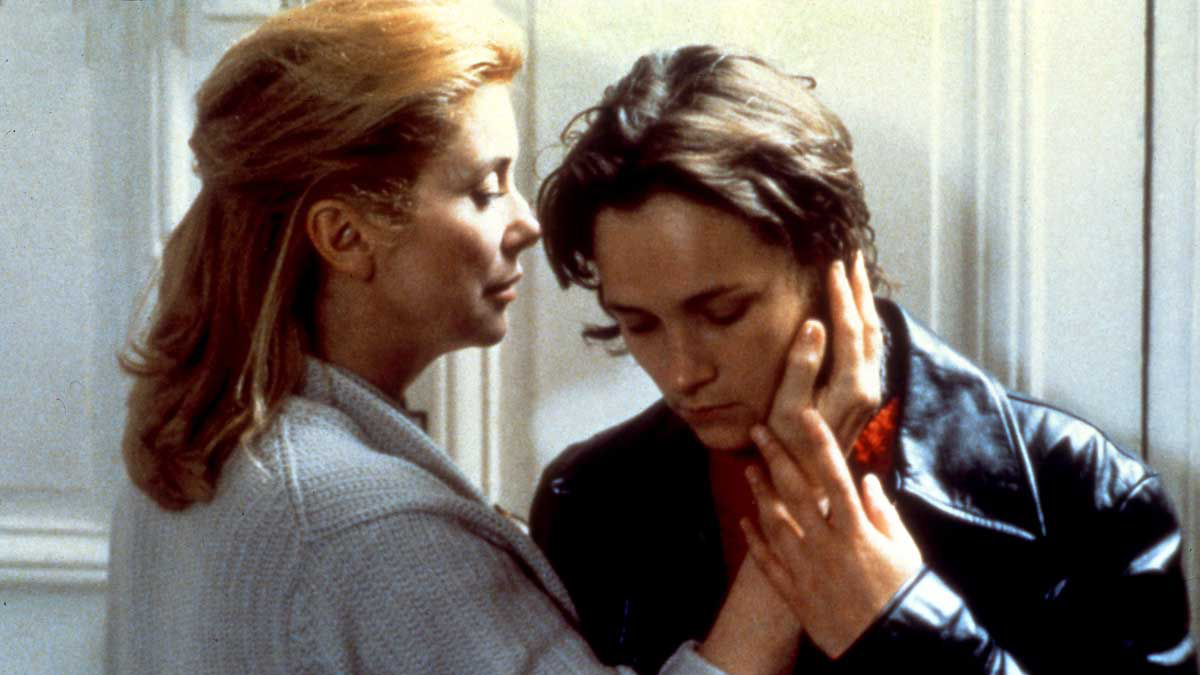
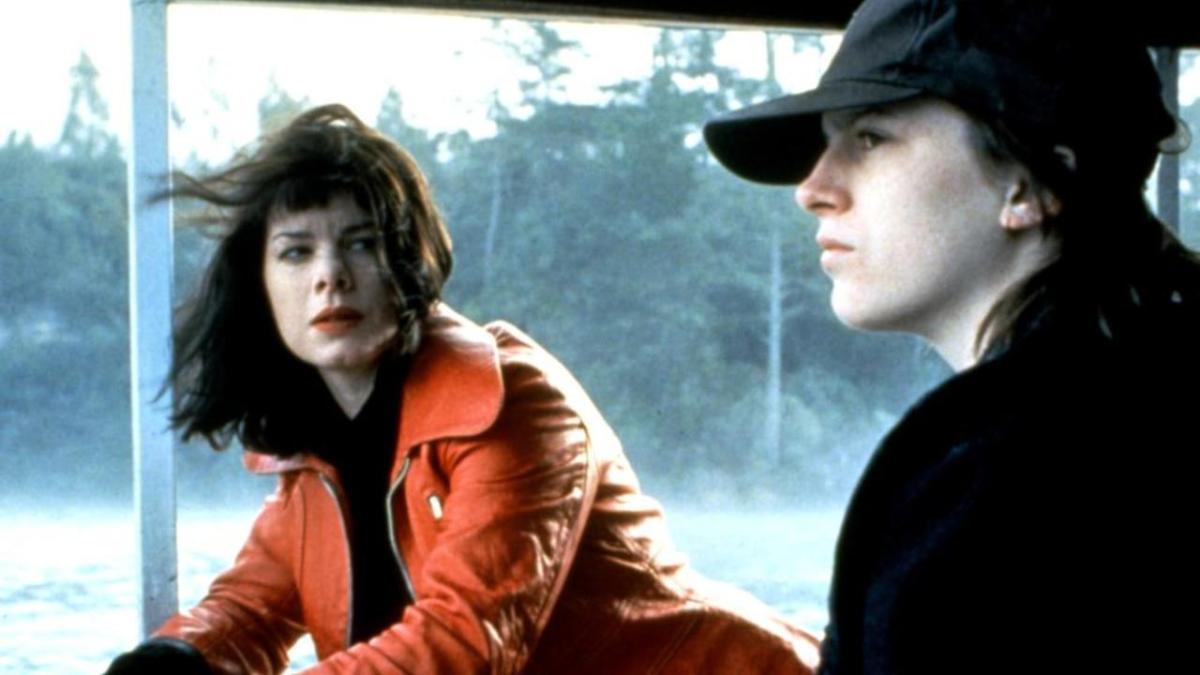
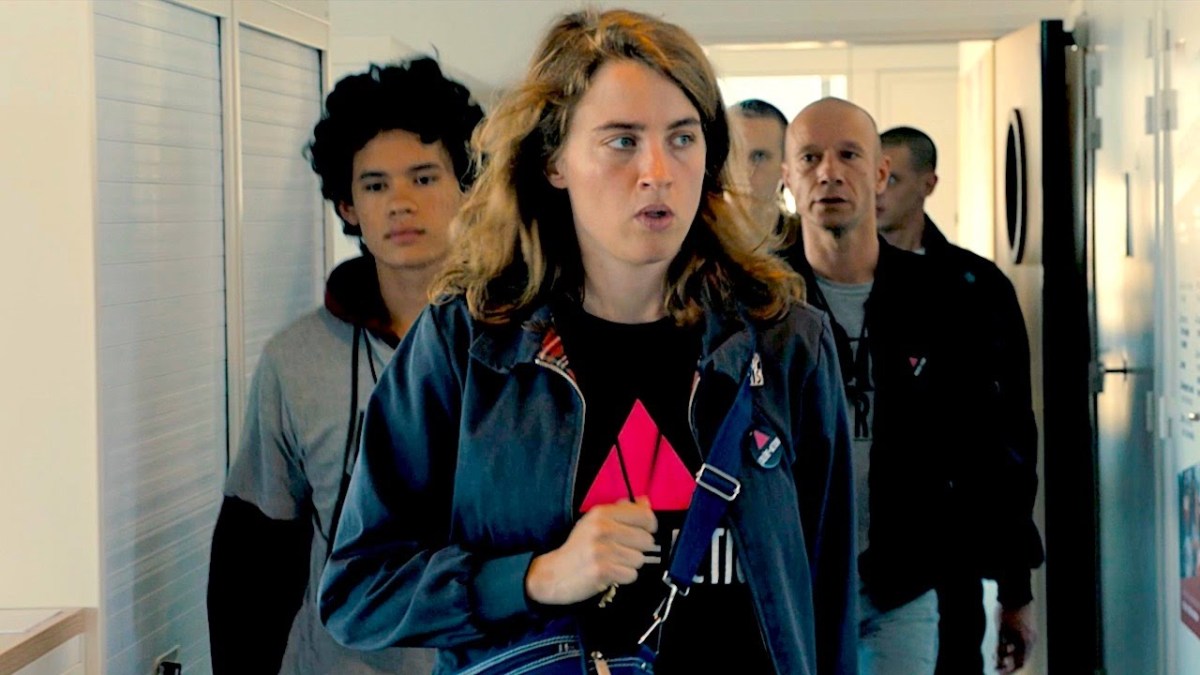
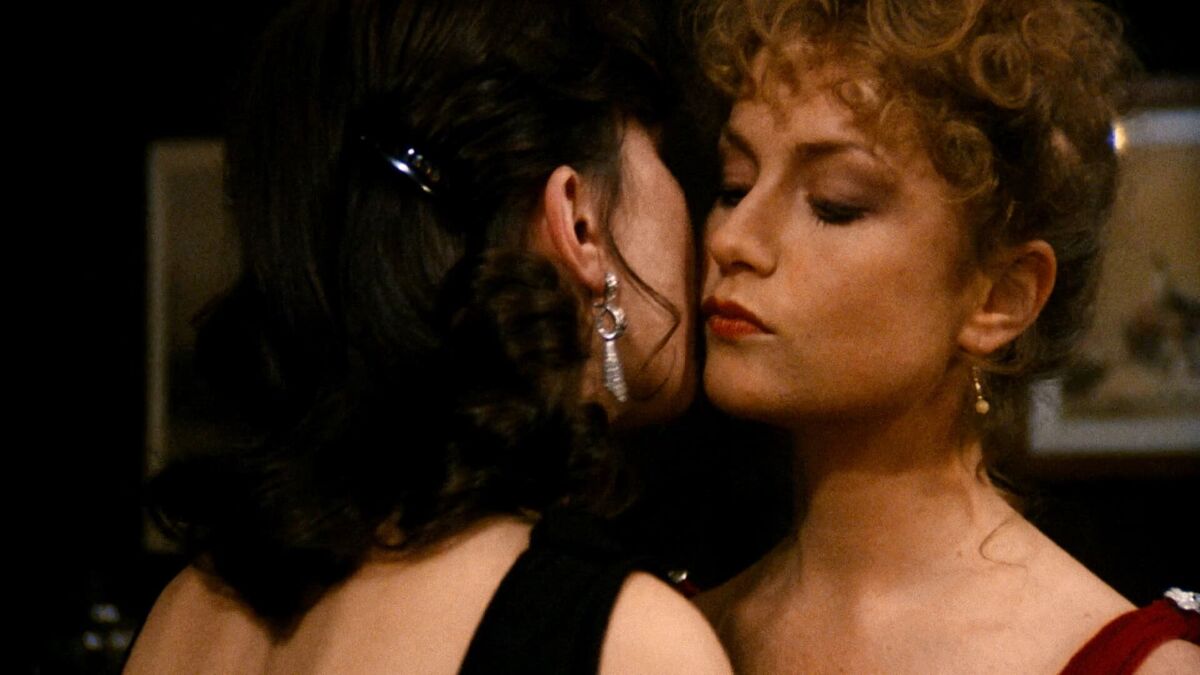
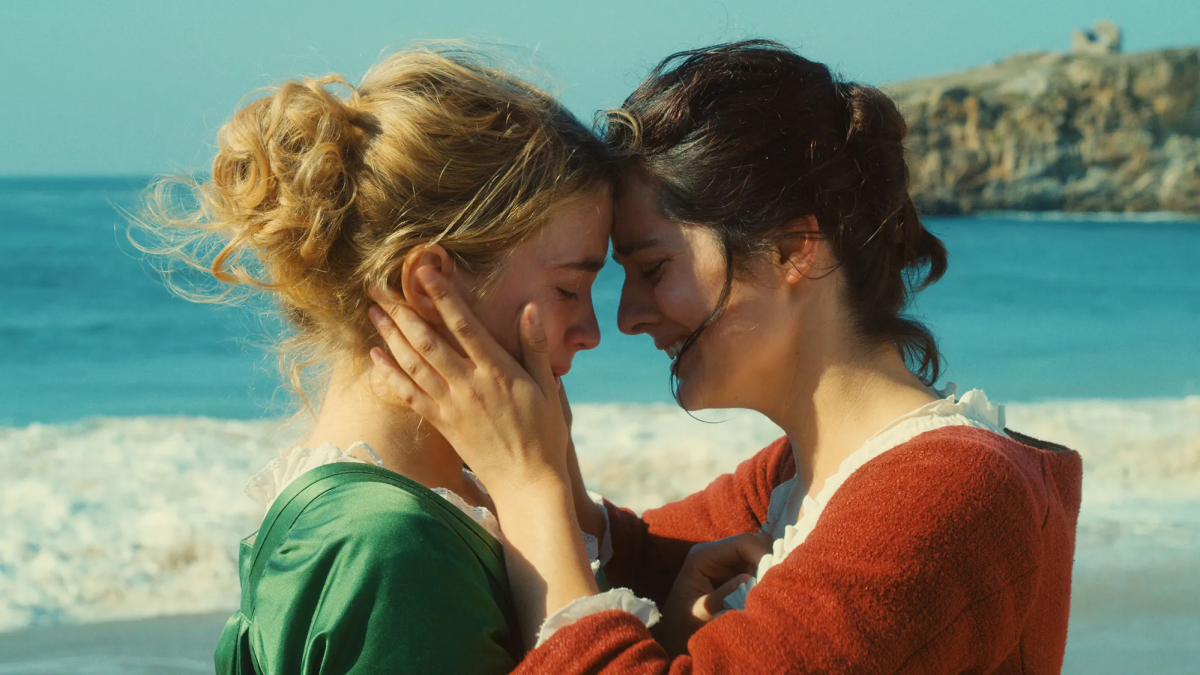



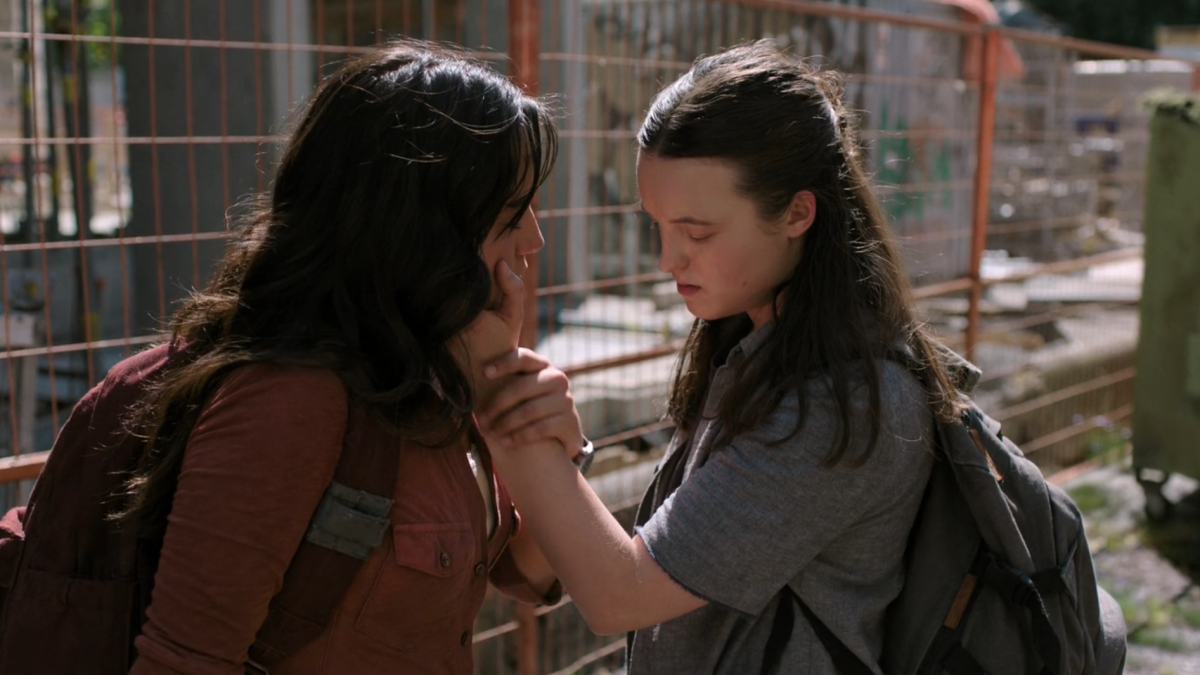





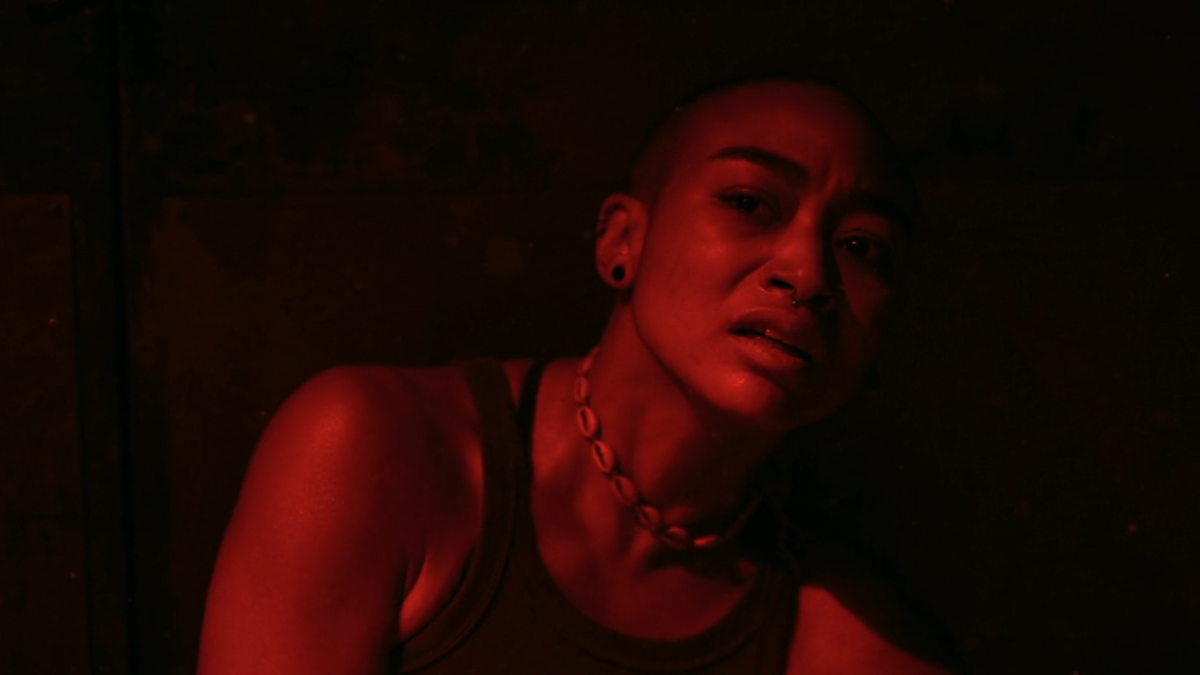













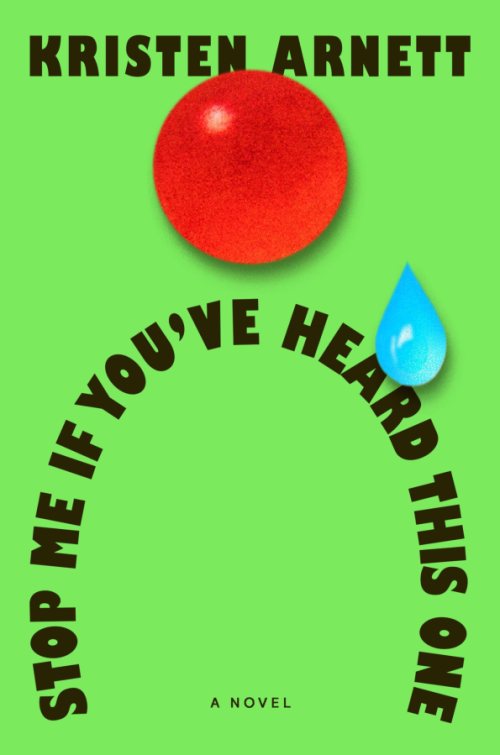
















I was also going to suggest writing (especially after they named some specific desires in the letter). I too find it much easier to express myself in writing, also because it means I don’t have to be hyper-aware of my response (or my facial reactions) versus having an in-person conversation.
I know she already verbalizes them, but writing can also be a way for your girlfriend to share desires or interests or preferences… it doesn’t have to feel like a one-way, like you are unloading some big secret you’ve kept locked up.
Maybe reframing this not as a problem to be solved but as finding new/different ways to communicate about this will take some of the pressure off (it seems like it is weighing on you a lot, LW). And I wonder if there a way to make it feel more playful? Like, if writing things out in a narrative like a letter feels too overdetermined, maybe you two can text about it while not being in the same space? Or leave little notes for each other and pass them back and forth?
ooooo passing notes back and forth is a great idea!